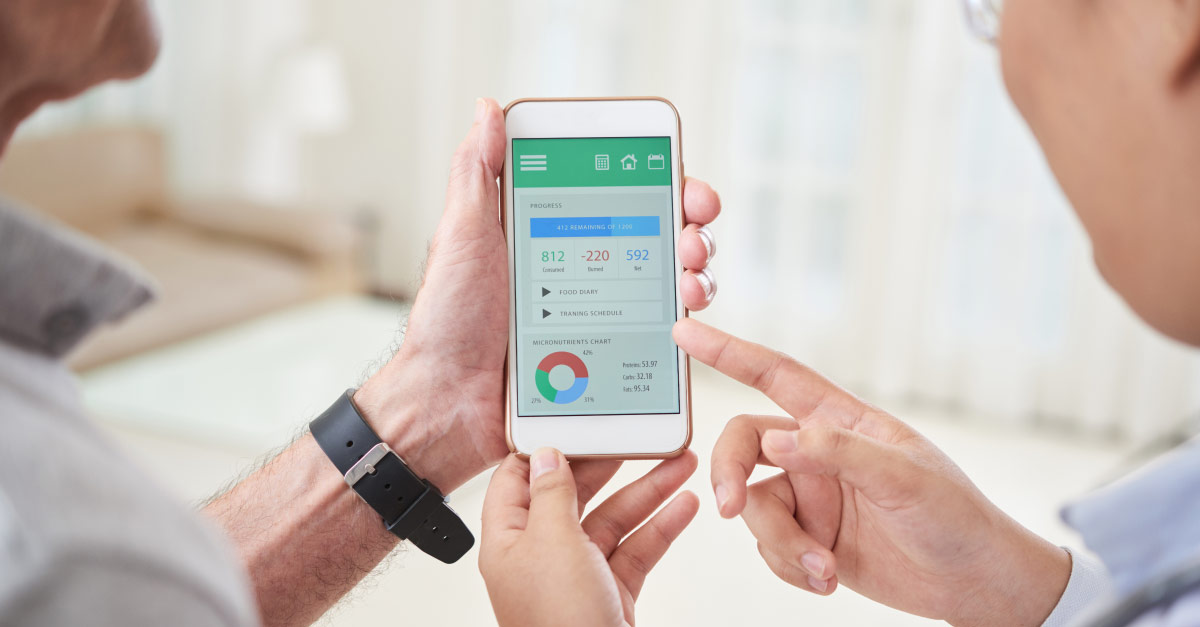
Data-driven healthcare: How data drives healthcare business decisions
4 min read
20/10/2021
Data is arguably the most valuable resource for performance and outcome improvement across industries, and healthcare is no exception. The process of gathering, parsing, and analyzing data can help healthcare organizations find ways to improve patient care, increase efficiencies, strengthen privacy protection, and adopt advanced technologies.
Having a solid understanding of healthcare analytics is key to making an impact on healthcare organizations. As the future pushes toward data-driven healthcare, professionals at all levels of healthcare need to be equipped with an education to use data for maximum benefit. Our Certificate in Healthcare Analytics program helps learners gain experience contemplating data, determining informed results, and making evidence-based and data-backed decisions. Our participants learn to ask the right questions, evaluate data collection schemes, and interpret complex data sets from various sources.
Using data to make decisions
Healthcare organizations are increasingly relying on smart, data-driven processes developed through healthcare analytics, or the process of finding trends through healthcare information. Providers rely on four different data sources:
Patient behavior and sentiment data
Claims and cost data
Research and development data
Clinical data
Patient behavior data can be used in ways that improve patient satisfaction, such as by reducing wait times by scheduling more nurses when people are most likely to make appointments or by tweaking processes based on how people rate their healthcare experience. This data can also help improve outcomes by making regular checkups easier and less stressful. Analyzing claims and cost data can help organizations operate more efficiently and reduce costs.
Research and development (R&D) data provides valuable insight into new drugs’ and treatments’ effectiveness, including for specific patient groups. Clinical data culled from patients’ electronic health records (EHRs) can be used for purposes such as anticipating preventable conditions by identifying patients at risk for illness or disease before they present any symptoms.
Methods and technologies in data analytics
Data has proven to be an invaluable resource for decision-makers in healthcare. By merging the advantages of real-world data and computer models, medical engineers are able to create technology that allows organizations to gather and analyze more healthcare information, faster than ever.
There are four primary categories of analytics: descriptive, diagnostic, predictive, and prescriptive.
- Descriptive analytics helps healthcare professionals answer questions based on existing information, such as evaluating how many patients were hospitalized in the last month.
- Diagnostic analytics stresses the importance of understanding why things happened, such as determining why those patients were hospitalized.
- Predictive analytics creates predictions to anticipate what will happen, such as figuring out which patients are most likely to be hospitalized again.
- Prescriptive analytics recommends actions that can be taken to potentially change the prediction, such as providing preventive care to the most high-risk patients.
As technology evolves, healthcare providers are finding new ways to gather different kinds of data that they can use to operate more efficiently and improve outcomes for patients.
Challenges in data-driven healthcare
Alongside the explosion of data’s role in healthcare decision-making, there’s also been an increase in attempts to hijack that data. One of the greatest risks facing healthcare organizations today is the threat of cybercrime. One recent breach involving the Lake County Health Department and Community Health Center (LCHD) in Illinois exposed the COVID-19 vaccination status of more than 700 individuals. In this case, LCHD was fortunate in that identifying information such as Social Security numbers was not compromised, but the blow to their reputation could be serious.
Data breaches must be minimized and repaired as efficiently as possible, with emphasis placed on making cybersecurity stronger so the organization and the individuals involved can feel safe. One way that organizations can protect their patients’ data is by following strict safety protocols against risks of cybercrime.
The European Union’s General Data Protection Regulation (GDPR), for example, establishes a standard of protecting personal information that many parties across the globe are trying to emulate. Key aspects of the GDPR include allowing companies to hold personal identifying information only as long as they need it, encrypting files to maximize security, and limiting data use to the specific reason it was collected.
Also of concern is the challenge of lagging interoperability in the exchange of healthcare information. When many different systems and methods are used to gather and store healthcare information, sharing that data between providers, payers, and patients and analyzing it to identify large-scale trends can be difficult. Policies like the Interoperability and Patient Access rule from the Centers for Medicare and Medicaid Services (CMS) and the adoption of standardized methods of collecting information for EHRs can lead to more efficient processes, reduce the burden on healthcare administrators, and improve patient outcomes.
Your next step in a management and healthcare career
The emphasis on data-driven healthcare will continue to grow more pronounced as professionals find new ways to use technology to improve care. Always striving for greater innovation and superior education, the online Certificate in Healthcare Analytics program offered by The Pepperdine Graziadio Business School in partnership with OpusVi harnesses the power of healthcare data analytics empowers leaders to make data-driven decisions that lead to improved quality, cost, and care.
Sources:
- Aidoc, “Data-Driven Healthcare, Changing the Exchange of Information”
- Centers for Medicare and Medicaid Services, Policies and Technology for Interoperability and Burden Reduction
- Fresenius Medical Care, “4 Types of Healthcare Analytics to Use in Your Practice”
- GDPR.eu, “What Is GDPR, the EU’s New Data Protection Law?”
- Information Builders Inc., “How to Become a Data-Driven Healthcare Organization in 7 Steps”
- Medtronic, “Technology Drives Healthcare Innovation”
- Sisense, “What Is Healthcare Analytics?”
Related Articles

News
30/06/2021
Automation in healthcare: 10 benefits healthcare leaders should capitalize on

News
11/05/2021
9 examples of disruptive innovations in healthcare
News
06/05/2024
The National Association of Latino Healthcare Executives (NALHE) and Dignity Health Global Education (DHGE) are aligned in their mission to increase access to high-quality education and equity in healthcare




